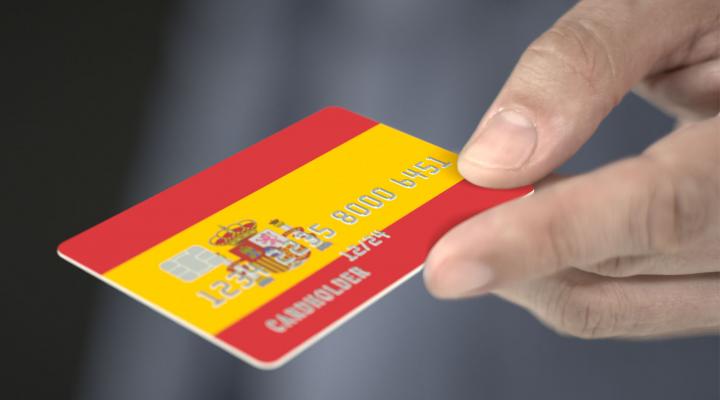
It would be almost impossible for anyone from outside of Spain to live in the country for an extended period of time without having a Spanish bank account. Many overseas bank accounts will charge you for every withdrawal you make in Spain, so if you are spending a lot of time in the country then you will save yourself a considerable amount of money by having a Spanish bank account to use whilst you’re in the country. But choosing the right Spanish bank account can be difficult, particularly if you’re new to the country and don’t know what offerings you should be looking for. To help you make the right choices for you, here are some hints and tips on how to choose the best bank accounts in Spain:
What You Need to Know About Spanish Bank Accounts
Choosing a Spanish bank account isn’t always straightforward; whilst you may think you know what you’re getting, the small print and the excessive financial jargon can make what seems like a simple and affordable bank account much more expensive than you had first thought. Another thing to look out for is hidden charges and fees: simple processes such as setting up a direct debit, not using your account regularly, or simply not having enough money added to your account each month, could all lead to bank charges. For this reason, you should always do your research before signing on the dotted line and committing to any one bank.
If you aren’t working during your time in Spain then you may be attracted by the ‘cuentas sin nómina’ (accounts without salary) but you need to know that most banks offering these types of account will still expect you to pay a certain amount into your account each month, and will charge a fee if you don’t. They may also have other hidden costs that you need to look out for: if an offer seems too good to be true it probably is, and there are very few truly free bank accounts in Spain. Spain’s six biggest banks alone (Santander, BBVA, La Caixa, Bankia and Sabadell) made more than €5billion in hidden costs alone in 2017, so this is a wide spread issue. Ask to see the terms and conditions of an account in full (including the small print) before you commit to it, and ensure you know what you’re going to be paying in full.
Deciding Which Bank is Right for You
The right bank account for you will depend largely on whether or not you are working in the country. This is because many Spanish banks will require you to submit proof that you’re signed up to Spain’s social security system within 30 days of opening your account, due to a Spanish law on the Prevention of Money Laundering and the Financing of Terrorism. If you are working, and have access to a wider range of accounts, then you may find it easier to find one with no or minimal fees: many Briton speak highly of the Banco Sabadell’s Cuenta Expansión, which offers no charges on current accounts or credit cards, but does have some requirements that you should research fully.
If you’re a non-working Spanish resident then realistically, only a handful of banks will let you open an account, probably with the condition of having to deposit regular money into the ‘cuenta’. These accounts are likely to be subject to a monthly fee, and various other terms and conditions to their use: you also may not have access to in-person customer service at the bank, as many of these accounts are designated as online accounts. Some examples of these are Santander’s Openbank, Cajamar’s Wefferent account, Bankia Cuenta ON and then the non-salaried accounts offered by smaller Spanish banks Abanca (Cuenta Clara), Coinc (Cuenta Coinc) and ActivoBank (Cuenta Activa).
What If I Need to Bank in English?
If you don’t speak any Spanish (or if your Spanish is a little rusty) then it may be worth considering choosing a bank that offers English-speaking customer service. Whilst this can never be guaranteed in-branch (with the level of English you will be offered in your local bank determined by which staff members are working on any given day) some banks do specifically consider the non-Spanish speaking customer. Banco Sabadell, for example, offers a 24-hour English customer service line, which earns them a big thumbs up.
One of the benefits of living in Spain is that there is a large ex-pat population, so most banks in Spain have online information about their financial services that’s in English: always ask if this is available, and if you can see a copy of your contract in English. This is the best way for you to be completely sure you know what you’re signing up for and that you aren’t missing anything important in the small print (which can often be hard enough to understand in your native tongue!)
If In-Person Banking is Important
The Spanish banking sector is undergoing a transformation, with more processes than ever moving online, resulting in an influx of bank closures (a process that has been expediated by the coronavirus crisis). In light of the many branch closures that almost all banks are experiencing across the country right now, if in-person banking matters to you then, despite the fees and charges outlined above, it would be worth considering which banks have branches in your local area. The more branches that are close to you, the more likely that you will be able to continue with in-person banking were one of these branches to close.
Are you in the process of moving to Spain or looking to make the right move to Spain for you? If you’re looking for estate agents in Southern Spain then why not get in touch ? Our locally based property experts are a font of local knowledge, and are perfectly placed to help you find the home of your dreams.

 English
English Español
Español Deutsch
Deutsch Français
Français Svenska
Svenska Nederlands
Nederlands Italiano
Italiano Norsk
Norsk Русский
Русский

































